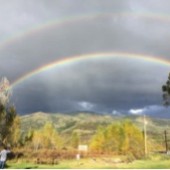
Abstract: In his landmark book Native Science (2000), indigenous educator Gregory Cajete eloquently articulates the motivations and questions that drive this study. For Cajete, effective education of our time entails “finding heart.” Finding heart is an active process within and beyond the person. It is evident in ethically and spiritually grounded work and being that embody meaningful connection to and care for others and nature (p. 288). This article relates to the process of finding heart through sustainability education. It presents a grounded-theory-based study of aspects of sustainability education that motivate or detract from activating hope and agency among undergraduate college students. Specific aspects of conceptual and social engagement, as well as the duration of these effects, are examined in some depth, with the voices of students themselves reflecting the diversity, depth, and power of their experience. The author concludes by suggesting that generating hope and agency among students is a vitally important outcome for sustainability education as part of the larger movement for sustainability. She also suggests curriculum design considerations for effectively activating hope and agency among students.
Continue Reading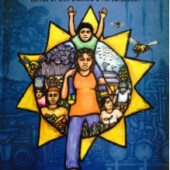
Abstract: The anthropocene era is one that is rife with ecological and social crises. Although many have been aware of the enormity of these problems and their systemic roots, the widespread educational response has not been sufficient in preparing youth to take part in creating a more just and sustainable world. Climate change is an umbrella issue for much of what the worlds facing. It is time for teachers to take the lead in using the classroom as a place to bring relevant, critical, joyful education that will lead to action in this crucial time. The following article is a book review for A People’s Curriculum for the Earth, a powerful resource for helping teachers equip students to confront our interconnected global crises, especially the climate crisis, and to highlight stories of teachers, activists, and organizations working to make a difference.
Continue Reading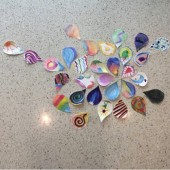
Abstract: Integrating contemplative methods into discussions of sustainability can create a sense of hope and agency in our students. In this case study, I present four tools that I use in my upper-level undergraduate/graduate seminar to engage students more deeply in reflection on topics in environmental ethics.
Continue Reading
Abstract: Through several original poems and contextual narrative reflection, “Finding Hope and Gratitude in the Climate Change Classroom” explores what it means to be a climate change educator and reflects on the author’s own experiences with cultivating agency and hope in the classroom.
Continue Reading
Abstract: The author has written extensively about American Indian relationships to the natural world with a focus on his published concepts of kincentricity and kincentric ecology (Salmon, 2000). Both are explanatory models of how American Indian cultures feel a sense of direct relationship and responsibility toward their surroundings. Traditional American Indians understand that they are directly related to everyone and everything in their natural surroundings. Everything in one’s environment is animated with a life force. How then does one teach kincentric ecology in an urban environment? A suggestion is to assign projects that will help students recognize the relationships happening all around them and to recognize that we humans exist in a relationship with everything around us. The author devised a project asking students to make periodic observations of the sun and/or moon. In the process of their observations students were asked to become aware of and to journal about their surroundings during their observations. The result was that students became periodically immersed in their natural surroundings and were, therefore, exposed to a facet of kincentricity.
Continue Reading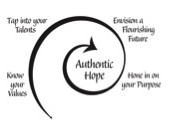
Abstract: Hope is a human process of discovery and perseverance that is based in personal values, a vision of the future, and a sense of purpose. This essay gives a brief overview on the role of phenomenological research in discovering the meaning of people’s lived experiences, such as the experience of hope. An example of phenomenological research on field ecologists’ lived experiences of climate change is provided in order to illuminate the experience of “silver linings” as the experience of hope while living in the midst of the dark cloud of climate change. An overview of a reflective curricular activity designed to cultivate hope and purpose in sustainability studies is provided.
Continue Reading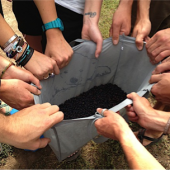
Abstract: The authors engage in a written dialog about their experiences with and understanding of hope and agency in the context of higher education happening in the midst of many converging crises of sustainability. The authors discuss their personal and professional views about teaching sustainability and about leading and collaborating in sustainability-oriented efforts. They consider sustainability and sustainability education efforts as both internal processes that take place within the person and external processes oriented toward others and the world. They explore questions of leadership and authority in relation to hope and agency and discuss the importance of making and communicating honest appraisals of the current situation of humans and the biosphere as a basis for fostering clear-eyed hope and agency in themselves and students.
Continue Reading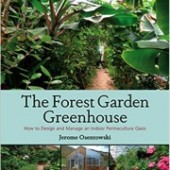
Abstract: Book review of The Forest Garden Greenhouse by Jerome Osentowski.
Continue Reading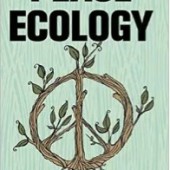
Abstract: Renowned author and professor Randall Amster embraces peace ecology as a way to engage in cooperative actions and practices that build community and foster resilience. Peace Ecology bridges the gap between social and environmental sciences, highlighting important ethical and interdisciplinary aspects of the field of peace studies and showing how these relate to both human communities and the places in which they are embedded.
Amster, R. (2015). Peace ecology. New York: Routledge.
Continue ReadingAbstract: Reviews the book Crimes against Nature: Squatters, Poachers, Thieves, and the Hidden History of American Conservation by Karl Jacoby. Discusses how this work reveals the often hidden consequences of the early conservation movement for land-based people.
Continue Reading
Abstract: This essay examines Randall Amster’s book Peace Ecology as a critical intervention articulating vital connections among discourses from peace and justice studies (on one hand) and the most vexing problems addressed by sustainability studies (on the other): from violent conflict and social inequity to environmental injustice and global ecocide. Reading this dialogue through the lens of hope, the author argues that Amster’s synthesis of this research provides effective tools for helping educators, students and practitioners of sustainability to generate new thought – and direct action – around these issues. By cataloguing and analyzing the many successes of ecological peacebuilding without absolving the paradigms of thought that continue to propagate war against people and planet, Amster empowers us to avoid both the trap of despair and the delusion of complacent optimism in order to foster the conditions that promote human beings’ mutually-beneficial peace and coexistence with each other and with the Earth.
Continue Reading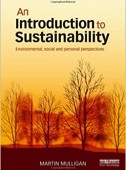
Abstract: Martin Mulligan’s An Introduction to Sustainability: Environmental, social and personal perspectives reviews the history of sustainability science, placing emphasis on the social-ecological model. This model introduces the importance of personal values and choices. He discusses topics around four themes: limits to growth, diversity, community and resilience. It is well-written, informative and novel.
Mulligan, M. (2014). An Introduction to Sustainability: Environmental, Social and Personal Perspectives. New York: Routledge. ISBN-13: 978-0415706445
Continue Reading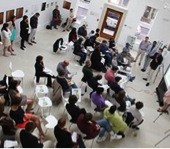
Helfrich JSE Nov 2015 Hope Issue PDF Abstract: This paper explores the creation and successes to date of an undergraduate minor program in Sustainable Community Development at Hobart & William Smith Colleges (HWS) in Geneva, New York. As a case study, it describes the program that HWS faculty created, the various components that comprise the […]
Continue Reading
Medrick JSE Nov 2015 Hope Issue PDF Abstract: This article examines the purpose, design, process, and operations of Prescott College’s PhD Program in Sustainability Education. It describes how students come into the program, participate in foundational course work, operate within a cohort framework, and provide feedback and support for each person’s […]
Continue Reading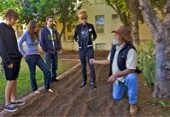
Abstract: Since Michael Crow, President of Arizona State University, founded the School of Sustainability in 2006, sustainability has become a central focus at the University. ASU offers both undergraduate and graduate degrees in sustainability, from Bachelor’s degree to Ph.D. level. The author, the Dean of the School of Sustainability at ASU, discusses how the University’s programs foster hope and agency among students and prepare them to address the pressing challenges of living and working sustainably. The author focuses primarily on curricular strategies and also addresses some extra-curricular strategies employed at ASU. He also discusses post-graduate employment patterns of alumni who have built upon their educational experience at ASU to become agents advancing sustainability in their work.
Continue Reading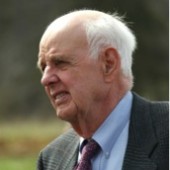
Schreck JSE Nov 2015 Hope Issue PDF Abstract: This essay chronicles three experiences I had within a matter of days that clarified for me how easily the good sense of Wendell Berry’s thinking is drowned out by the reductive presuppositions of modern industrialism and how necessary his thinking is for our hope of survival. With […]
Continue Reading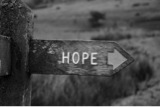
Abstract: The concept of hope is rich in context, and working with it from different angles can enhance inner resources. Framing hope as a process offers tools for sustainability educators: subjective exploration, empathy development, critical thinking, and civic engagement.
Continue Reading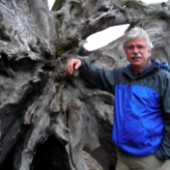
Abstract: Development of a sustainable relationship with our natural resources is an imperative for any meaningful quality of life as climate change poses the ultimate test of our adaptability as a species. The consequences of failing to respond will be catastrophic and irrevocable over a millennial time scale. During the environmental century, higher education has an ethical imperative to provide the foundation of a sustainable civilization. Higher education is broadly failing to meet this mandate. Most existing programs in environmental and sustainability science and studies provide inadequate training and lack budgetary autonomy equivalent to established academic units. Although many universities define sustainability through operational activities, the primary purpose of higher education is not operational sustainability — it is teaching, learning, scholarship, and outreach. Developing the capacity for proactive adaptation will require us to examine how we conduct teaching and research across the spectrum of higher education institutions. Education and research for proactive adaptation to rapid ecological change affecting human and natural systems is necessary if we are to produce holistic managers to conserve our natural heritage. All undergraduates should acquire basic ecological and sustainability literacy. Teaching, learning, and scholarship for sustainability must become the highest priority in higher education. Collectively, faculty have the power to implement these reforms.
Continue Reading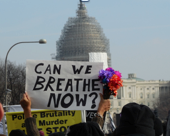
Abstract: Writing an essay about hope in these times feels like an indulgence of privilege. Still, with full awareness of the implications, I want to insist that we not lose hope, that we make it meaningful, and that we go so far as to make its cultivation a central focus of our lives and work. This essay is intended to serve as a calling card for like-minded inquirers to reach out across time and space, to find ourselves and one another in the engaged optimism of meaningful work in the world, and as an acknowledgment of appreciation for all of those who do so.
Continue Reading